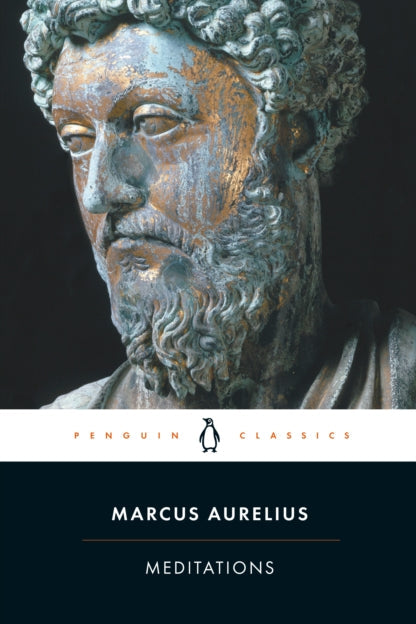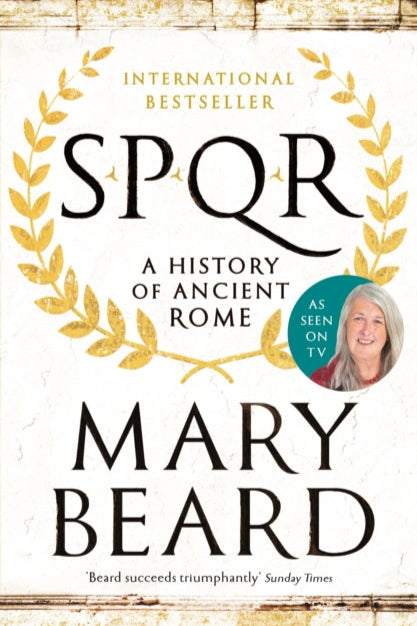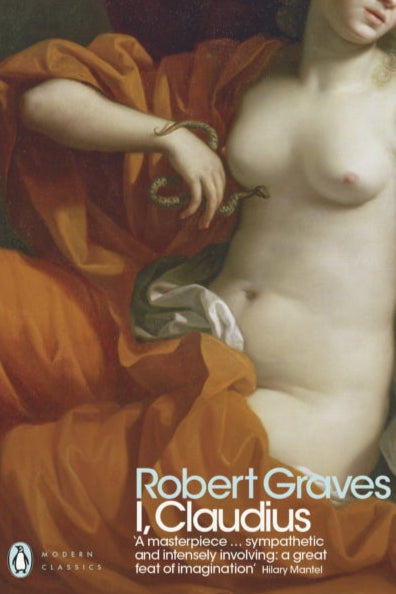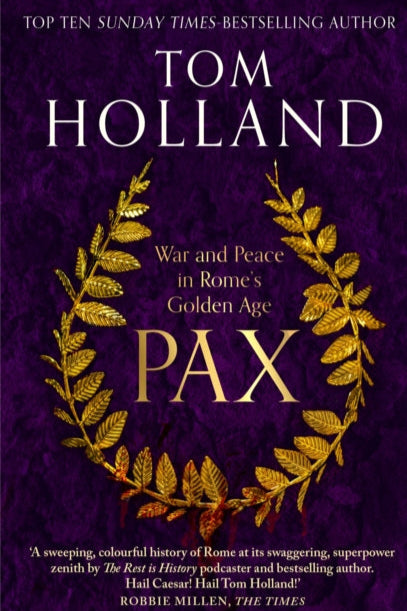Roman Empire
How often do you think about the Roman Empire? This collection includes SPQR and Meditations for history and philosophy, alongside Pax and A History of the Roman Empire in 21 Women. I, Claudius blends fact and fiction in a gripping imperial drama. These books reveal how Rome built its world, alongside how emperors, citizens and outsiders navigated life during this period.

Meditations - Marcus Aurelius
Written in Greek by the only Roman emperor who was also a philosopher, without any intention of publication, the Meditations of Marcus Aurelius offer a remarkable series of challenging spiritual reflections and exercises developed as the emperor struggled to understand himself and make sense of the universe. While the Meditations were composed to provide personal consolation and encouragement, Marcus Aurelius also created one of the greatest of all works of philosophy: a timeless collection that has been consulted and admired by statesmen, thinkers and readers throughout the centuries.

SPQR - Mary Beard
SPQR is a new look at Roman history from one of the world's foremost classicists. It explores not only how Rome grew from an insignificant village in central Italy to a power that controlled territory from Spain to Syria, but also how the Romans thought about themselves and their achievements, and why they are still important to us. Covering 1,000 years of history, and casting fresh light on the basics of Roman culture from slavery to running water, as well as exploring democracy, migration, religious controversy, social mobility and exploitation in the larger context of the empire, this is a definitive history of ancient Rome.

A History of the Roman Empire in 21 Women - Emma Southon
Here’s how the history of the Roman Empire usually goes… We kick off with Romulus murdering his brother, go on to Brutus overthrowing Tarquin, bounce through an appallingly tedious list of battles and generals and consuls, before emerging into the political stab-fest of the late Republic. After ‘Et tu, Brute?’, it runs through all the emperors, occasionally nodding to a wife or mother to show how bad things get when women won’t do as they’re told, until Constantine invents Christianity only for Attila the Hun to come and ruin everything. Let’s tear up this script. The history of Rome and its empire is so much more than these ‘Important Things’. In this alternative history, Emma Southon tells another story about the Romans, one that lives through Vestal Virgins and sex workers, business owners and poets, empresses and saints.

I, Claudius - Robert Graves
Despised for his weakness and regarded by his family as little more than a stammering fool, the nobleman Claudius quietly survives the bloody purges and mounting cruelty of the imperial Roman dynasties. In I, Claudius he watches from the sidelines to record the reigns of its emperors: from the wise Augustus and his villainous wife Livia to the sadistic Tiberius and the insane excesses of Caligula. Written in the form of Claudius' autobiography, this is the first part of Robert Graves's brilliant account of the madness and debauchery of ancient Rome.

Pax - Tom Holland
The Pax Romana has long been revered as a golden age. At its peak, the Roman Empire stretched from Scotland to Arabia, and contained perhaps a quarter of humanity. It was the wealthiest and most formidable state the world had yet seen. Beginning in 69AD, a year that saw four Caesars in succession rule the empire, and ending some seven decades later with the death of Hadrian, Pax presents a dazzling history of Rome at the height of its power. From the gilded capital to realms beyond the frontier, historian Tom Holland portrays the Roman Empire in all its predatory glory.
